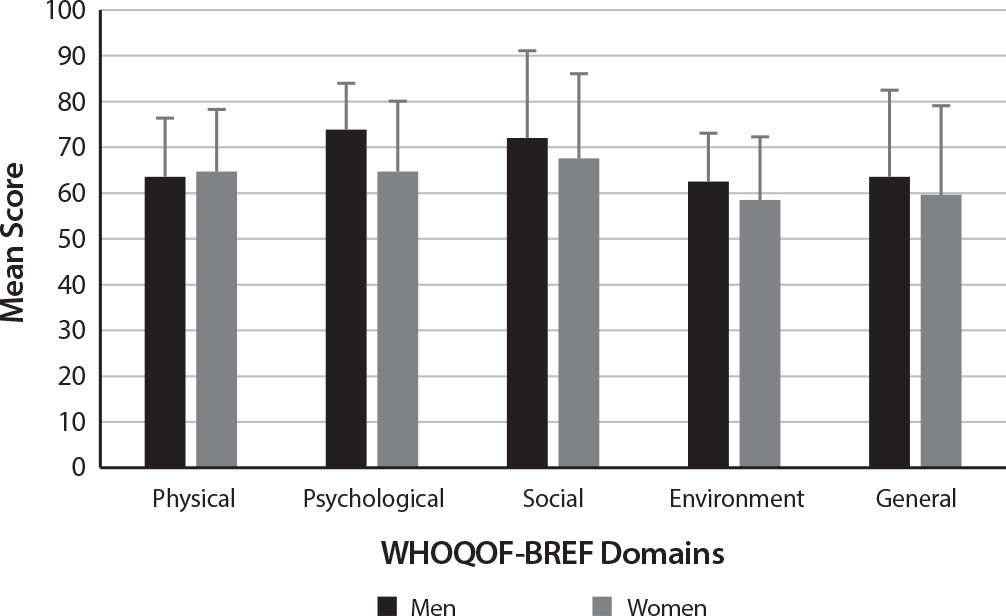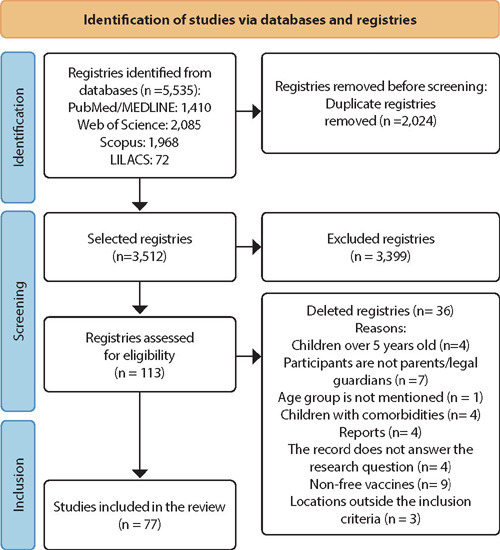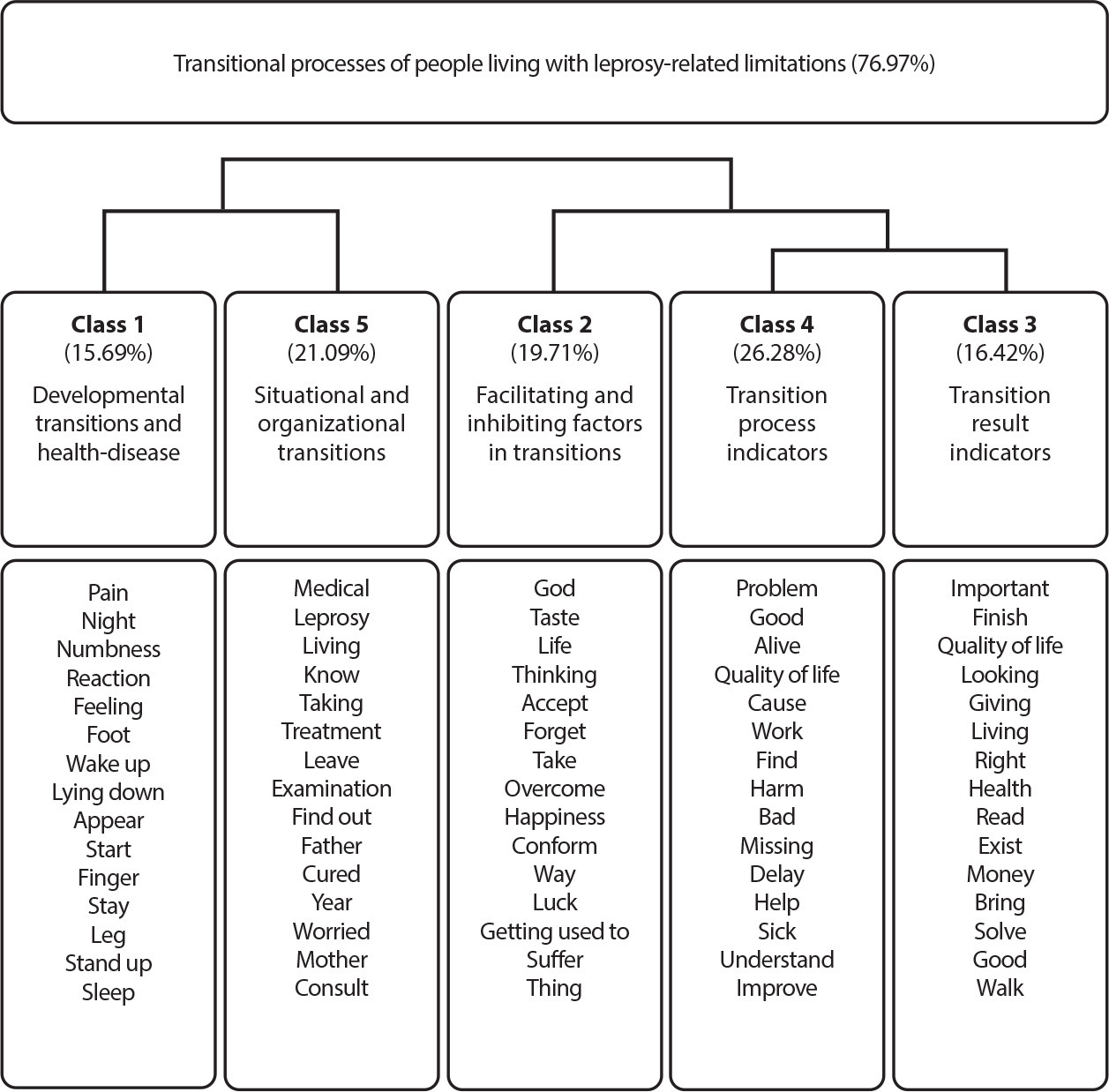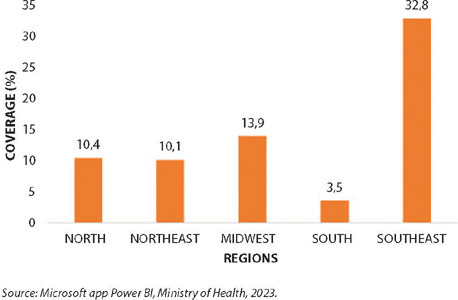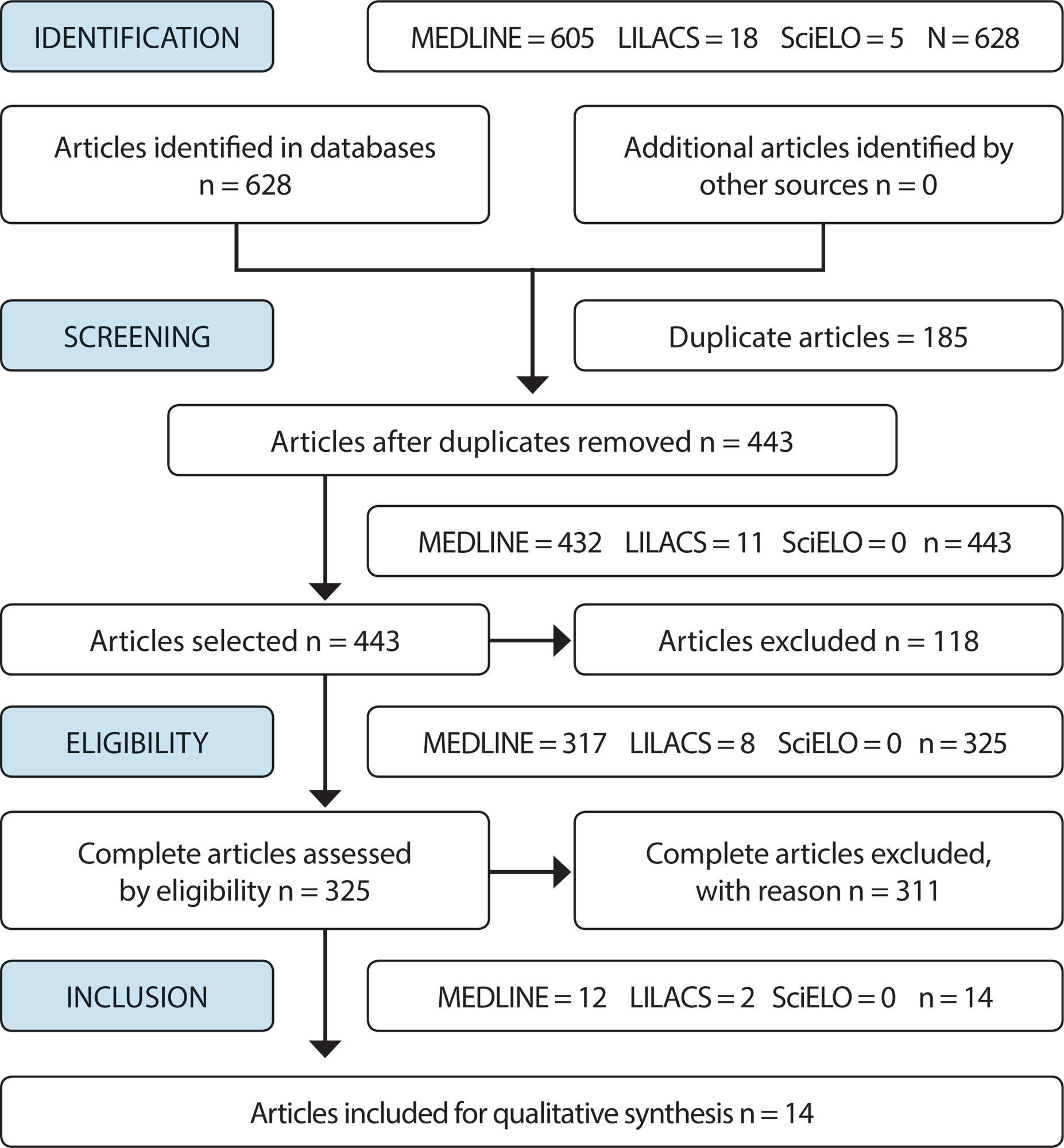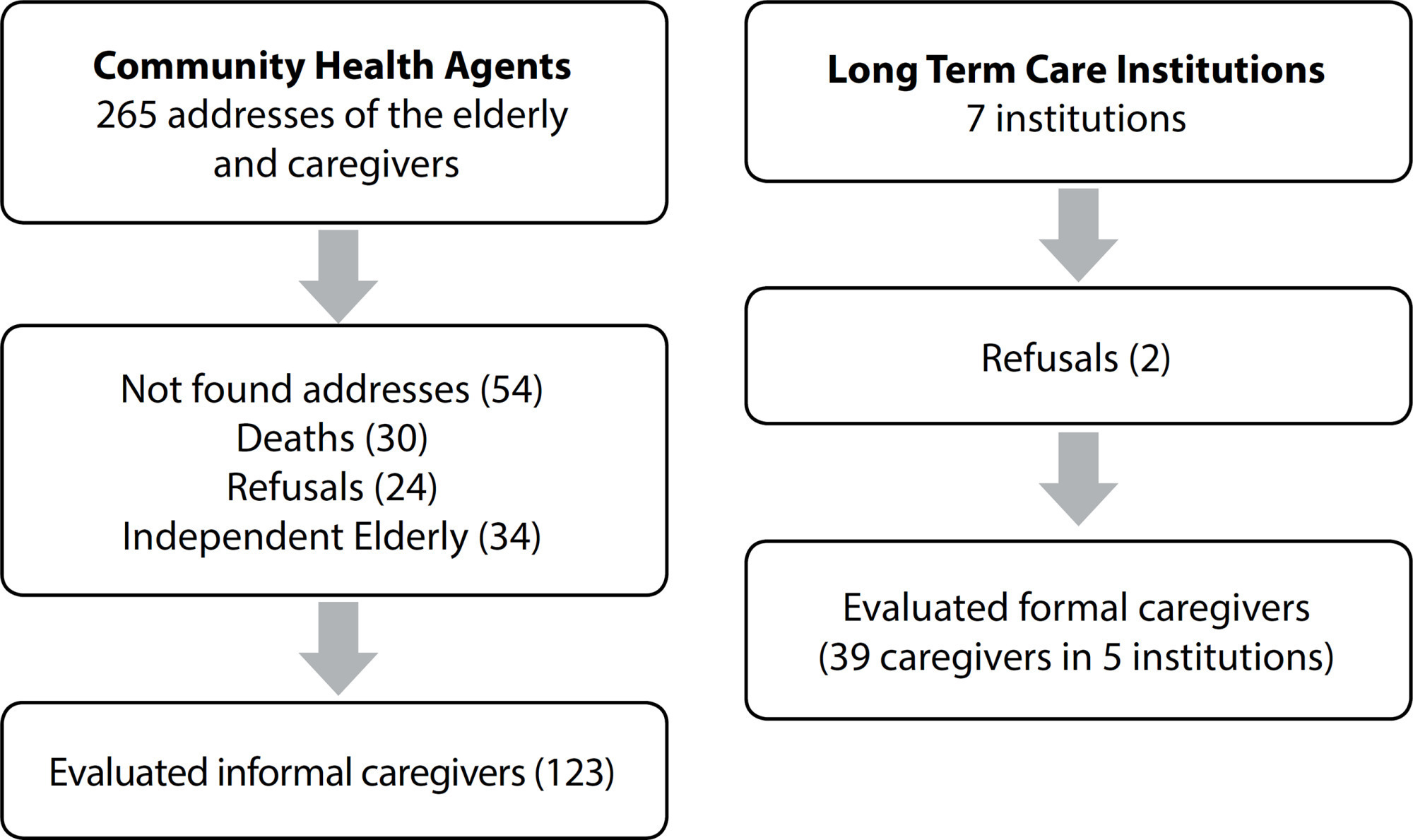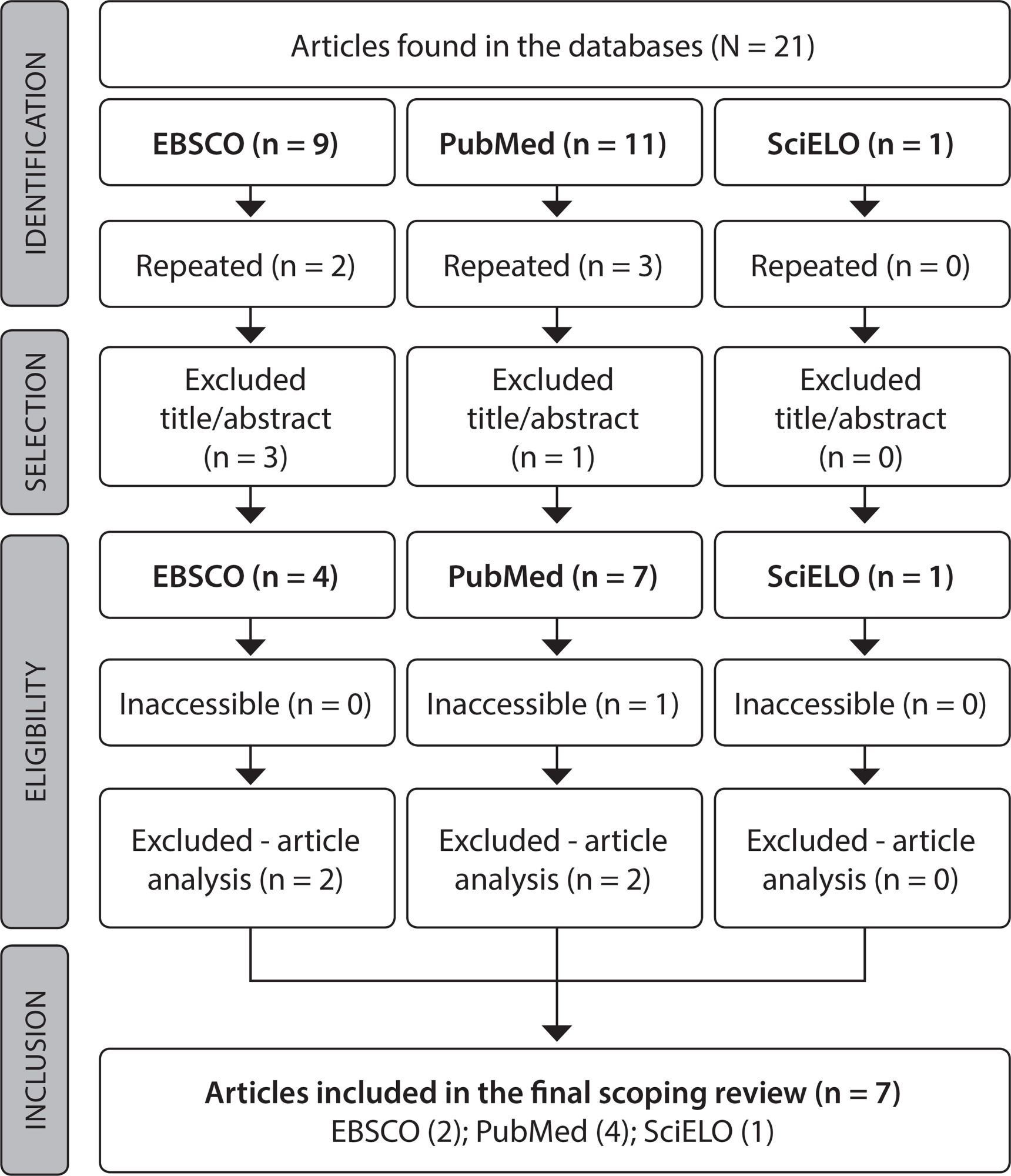-
RESEARCH01-01-2017
Perception of nursing professionals on patient safety culture
Revista Brasileira de Enfermagem. 2017;70(6):1284-1290
Abstract
RESEARCHPerception of nursing professionals on patient safety culture
Revista Brasileira de Enfermagem. 2017;70(6):1284-1290
DOI 10.1590/0034-7167-2016-0010
Views0See moreABSTRACT
Objective:
To evaluate nursing professionals’ perception on safety climate, to check if this perception differs between categories and if there is correlation between the Safety Attitude Questionaire (SAQ) domains and personal and professional variables.
Method:
Quantitative and transversal study held in a teaching hospital in the countryside of São Paulo, in Brazil. Data collection occurred in the period from April to July 2014, with the application of the SAQ.
Results:
259 professionals participated in the study. The domain job satisfaction obtained scores above 75 for both categories. The perception of safety climate differed between the categories for most areas, except for the recognition of stress, and there is correlation between five SAQ domains and the variables time of experience and intention to leave the profession.
Conclusion:
Knowing the professionals’ perception on safety climate will contribute to a secure assistance.
PlumX Metrics
- Citations
- Citation Indexes: 30
- Usage
- Full Text Views: 6372
- Abstract Views: 218
- Captures
- Readers: 179
-
RESEARCH01-01-2017
Care management and nursing governance in a maternity ward: grounded theory
Revista Brasileira de Enfermagem. 2017;70(6):1277-1283
Abstract
RESEARCHCare management and nursing governance in a maternity ward: grounded theory
Revista Brasileira de Enfermagem. 2017;70(6):1277-1283
DOI 10.1590/0034-7167-2016-0116
Views0See moreABSTRACT
Etjective:
To understand the care management strategies used by nurses in the governance of nursing practice in a maternity ward.
Method:
Qualitative study based on grounded theory conducted with 27 participants, partitioned into four sample groups. The data were collected through semi-structured interviews and analyzed through open, axial, and selective coding.
Result:
The care management strategies used by the nurses were: planning professional practice, leading the nursing team, search for scientific knowledge, and training inthe best practices in obstetric care.
Conclusion:
Associating care management with nursing governance can foster better care outcomes and strengthen nursing autonomy when coordinating nursing work in maternity wards.
PlumX Metrics
- Citations
- Citation Indexes: 5
- Usage
- Full Text Views: 6705
- Abstract Views: 142
- Captures
- Readers: 67

-
RESEARCH01-01-2017
Cross-cultural adaptation of the Filial Responsibility protocol for use in Brazil
Revista Brasileira de Enfermagem. 2017;70(6):1268-1276
Abstract
RESEARCHCross-cultural adaptation of the Filial Responsibility protocol for use in Brazil
Revista Brasileira de Enfermagem. 2017;70(6):1268-1276
DOI 10.1590/0034-7167-2016-0479
Views0See moreABSTRACT
Objective:
To carry out a cross-cultural adaptation of the Filial Responsibility protocol for use in Brazil with adult child caregivers for elderly parents.
Method:
A methodological study that included the steps of initial translation, synthesis of translations, back-translation, committee of experts, pre-test, evaluation of psychometric measures and submission to authors. The protocol comprises a qualitative step, closed questions and seven scales: Filial Expectation, Subsidiary Compassion, Caregiver burden, Life Satisfaction, Personal Well-being and Quality of Relationships.
Results:
The final version in Portuguese was applied, through a pre-test, to a sample of 30 caregivers for elderly parents. In order to verify internal consistency, we used Cronbach’s alpha coefficient: Filial Expectation (α = 0.64), Filial Duty (α = 0.65), Satisfaction with Life (α = 0.75), Personal Wellbeing (α = 0.87).
Final considerations:
The Brazilian version presented good conceptual and face equivalence. The results demonstrate that the concepts used in the Canadian protocol are applicable in the Brazilian context.
-
RESEARCH01-01-2017
Profile of intimate partner violence in Family Health Units
Revista Brasileira de Enfermagem. 2017;70(6):1259-1267
Abstract
RESEARCHProfile of intimate partner violence in Family Health Units
Revista Brasileira de Enfermagem. 2017;70(6):1259-1267
DOI 10.1590/0034-7167-2016-0007
Views0See moreABSTRACT
Objective:
To estimate the profile of intimate partner violence involving women in a scenario of Family Health Strategy in the municipality of Nova Iguaçu (Rio de Janeiro).
Method:
A transversal study was conducted in four units with a sample of 640 women between the ages of 25 to 64. The phenomena of violence was determined using the tool Revised Conflict Tactics Scales, validated for Brazil. Statistical analysis took into consideration an estimation of prevalence in the calculation of the p values.
Results:
The situations of violence and the sociodemographic profiles demonstrated a statistically significant relationship with the variables of educational level and housing conditions. Age, ethnicity and economic class demonstrated an association with certain types of violence, varying in type and severity.
Conclusion:
The study investigated the profile of these situations of violence and enabled reflection regarding the approaches adopted by the Family Health Strategy teams.
-
RESEARCH01-01-2017
Educational practices of nursing in the puerperium: social representations of puerperal mothers
Revista Brasileira de Enfermagem. 2017;70(6):1250-1258
Abstract
RESEARCHEducational practices of nursing in the puerperium: social representations of puerperal mothers
Revista Brasileira de Enfermagem. 2017;70(6):1250-1258
DOI 10.1590/0034-7167-2016-0136
Views0See moreABSTRACT
Objective:
To understand the social representations of puerperal women regarding the contents of the educational practices carried out by nursing in the puerperium.
Method:
Descriptive and qualitative study, carried out from June to September 2014, in Fortaleza, Ceará State, Brazil. Nineteen puerperal women were administered a semi-structured interview. The Theory of Social Representations was used as a theoretical reference. Lexical analysis was performed with ALCESTE (version 2012) software.
Results:
The contents of the representations on educational practice were associated to the nursing team’s orientations, with emphasis on breastfeeding and nursing. A lack of educational action regarding self-care of the puerperal woman was also revealed.
Final considerations:
It is necessary to redirect educational practices in the puerperium, in order to cover the biopsychosocial needs of women in this period of life. The educational actions should be based on the problematizing model, with a stimulus for the autonomy of puerperal mothers and valorization of their social knowledge.
-
RESEARCH01-01-2017
Influence of Therapeutic Play on the anxiety of hospitalized school-age children: Clinical trial
Revista Brasileira de Enfermagem. 2017;70(6):1244-1249
Abstract
RESEARCHInfluence of Therapeutic Play on the anxiety of hospitalized school-age children: Clinical trial
Revista Brasileira de Enfermagem. 2017;70(6):1244-1249
DOI 10.1590/0034-7167-2016-0353
Views1See moreABSTRACT
Objective:
To evaluate the effects of Dramatic Therapeutic Play (DTP) technique on the degree of anxiety in hospitalized school-age children.
Method:
Randomized clinical trial performed in two hospitals ofSão Paulo, between May and October 2015. The intervention consisted of the application of DTP and the outcome was evaluated through the Child Drawing: Hospital (CD: H) instrument. The Wilcoxon-Mann Whitney, Corrected t, Fisher’s exact and Chi-square tests were used in the analysis. Statistical significance was set at 5%.
Results:
In all, 28 children participated in the study. The majority of children (75%) had a low anxiety score, with a mean CD: H score of 73.9 and 69.4 in the intervention and control groups respectively, and with no significant difference.
Conclusion:
Children submitted to DTP had the same degree of anxiety as those in the control group. However, it is suggested that new studies be performed with a larger number of children in different hospitalization scenarios.

-
RESEARCH01-01-2017
Social representations of sex and gender among trans people
Revista Brasileira de Enfermagem. 2017;70(6):1235-1243
Abstract
RESEARCHSocial representations of sex and gender among trans people
Revista Brasileira de Enfermagem. 2017;70(6):1235-1243
DOI 10.1590/0034-7167-2016-0581
Views0See moreABSTRACT
Objective:
To analyze the social representations of sex and gender among transsexual people, through their life histories.
Method:
Qualitative, multicenter and descriptive research. The participants were 70 transsexuals from Brazil and Costa Rica. Data were analyzed according to the technique of Content Analysis.
Results:
Two complementary representations related to sex were identified: “Sex as a natural categorical imposition sealed and acquired (irremediably) at birth” and “Sex as an element that labels, condemns and differentiates people.” Regarding gender, a single representation was associated with “synthetic-social constructions associated with (necro/bio) power, cisnormativity and culture.”
Final considerations:
The former absolute division of gender as social construction and of sex as considered as natural must be questioned in order to analyze both concepts as an interconnected dyad. In addition, it should be recognized that this dyad presents itself as an organizational and cognitive construct, mediated by the still prevalent cispatriarchal (necro/bio) power.
PlumX Metrics
- Citations
- Citation Indexes: 14
- Usage
- Full Text Views: 6289
- Abstract Views: 255
- Captures
- Readers: 58

-
RESEARCH01-01-2017
Critical points for the control of Tuberculosis on Primary Health Care
Revista Brasileira de Enfermagem. 2017;70(6):1227-1234
Abstract
RESEARCHCritical points for the control of Tuberculosis on Primary Health Care
Revista Brasileira de Enfermagem. 2017;70(6):1227-1234
DOI 10.1590/0034-7167-2016-0467
Views0See moreABSTRACT
Objective:
To analyze the discourses of professionals that work on the reference service about the critical points that affects the essential attributes of the Primary Health Care (PHC) related to the control of tuberculosis in the city of João Pessoa.
Method:
The empirical material collected from August to October in 2014, through the interview technique was analyzed through the methodological-theoretical framework of French Discourse Analysis.
Results:
The discourses demonstrated the critical points on the control of the disease on PHC as being the lack of bond and welcoming from the professionals in relation to patients with tuberculosis. It was realized that the professionals have prejudice about the disease, that they have difficulties on the access to conducting exams, appointments and treatments, as well as there are fails on the reference and counter-referencing system.
Final Considerations:
Managers should be aware about the results that were found, so that facing actions can be planned and executed in order to minimize the existent of critical points.
Search
Search in:
Nuvem de Tags
Enfermagem (930)Cuidados de Enfermagem (269)Atenção Primária à Saúde (239)Idoso (208)Educação em Enfermagem (151)Segurança do Paciente (150)Saúde Mental (145)Educação em Saúde (139)Estudos de Validação (131)Qualidade de Vida (104)Tecnologia Educacional (100)Promoção da Saúde (99)COVID-19 (91)Criança (91)Família (87)Enfermagem Pediátrica (86)Saúde do Trabalhador (86)Adolescente (85)Saúde Pública (82)Estudantes de Enfermagem (77)





